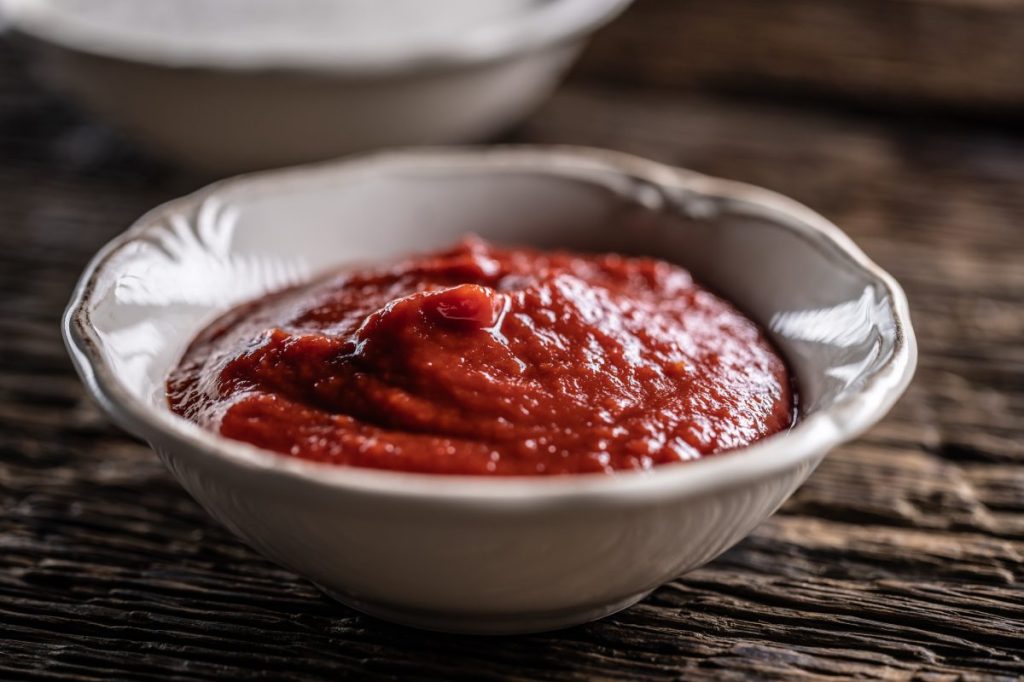No, dogs cannot eat ketchup safely. While dogs can usually handle a small amount of accidental ingestion without needing a trip to the emergency vet, you should steer clear of sharing any with your dog. Most ketchup brands contain garlic or onion powder, which is toxic. An accidental lick or two usually won’t hurt them, but it’s better just to steer clear of sharing ketchup altogether.
As always, you must ask your regular vet before going ahead and sharing any human food with your beloved pooch, including ketchup. Here’s what you need to know about ketchup and dogs.
When is ketchup okay for my dog to eat?
The main ingredient in most ketchups is tomatoes, and ripe tomatoes without leaves or stems are not toxic to dogs. While tomatoes should not form the majority of your dog’s diet, you can occasionally give your dog a bite as a snack or a treat.
So when it comes to a dog who sneaks in a lick or two of ketchup, they should hopefully be fine and not suffer from any adverse reactions. However, it’s the smartest option to steer clear of ketchup altogether due to the presence of sugar, garlic, and onion powder in nearly every ketchup brand. Even many sugar-free options contain Xylitol, making this the most dangerous ketchup option of all.
When is ketchup bad for dogs?
While tomatoes are the main ingredient in most ketchups, commercial brands usually also contain garlic powder and onion powder. These two ingredients are not good for dogs.
Certain compounds in onion powder can harm a dog’s red blood cells, causing anemia. Garlic powder is equally dangerous for dogs because of its negative impact on red blood cells.
Additionally, most commercial ketchups contain high levels of sugar and sodium, which is not something you want to get into the habit of feeding to your canine. As previously mentioned, any ketchup containing xylitol should be strictly monitored — no sneaky licks here! Even a small amount could send your pup to the emergency vet.
If you notice that your dog has managed to eat a significant amount of ketchup, you should monitor the situation closely and keep an eye out for possible symptoms. Some of the most common symptoms of a dog eating too much ketchup include:
- Acting lethargic
- Losing their appetite
- Seeming weaker than usual
- Urine that looks red
If you notice that your dog seems to be showing significant symptoms after eating ketchup, make sure to consult your regular veterinarian straight away.









